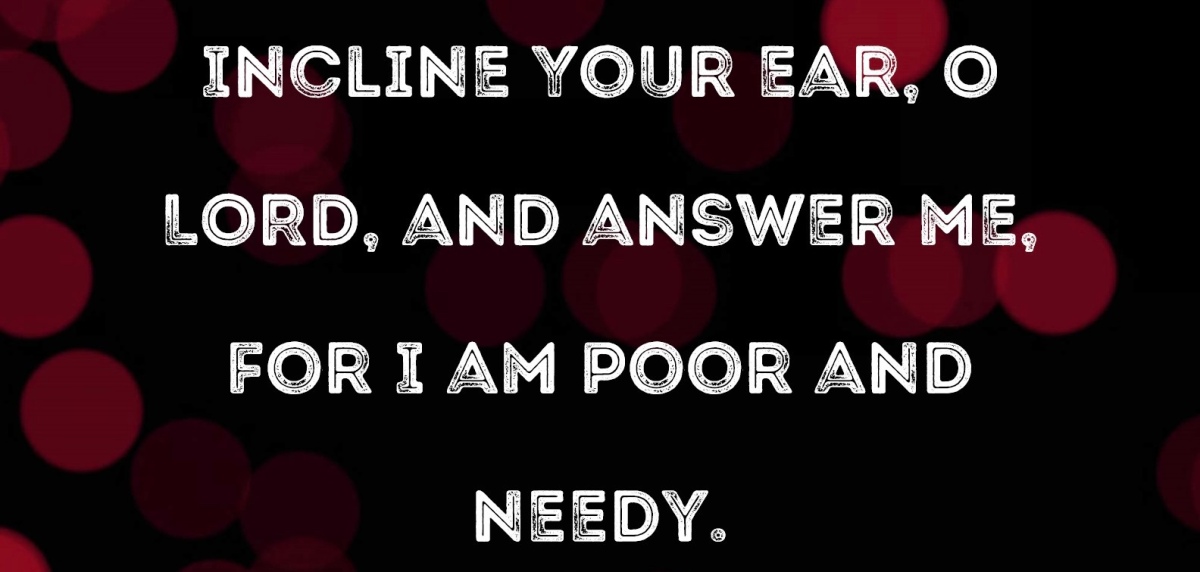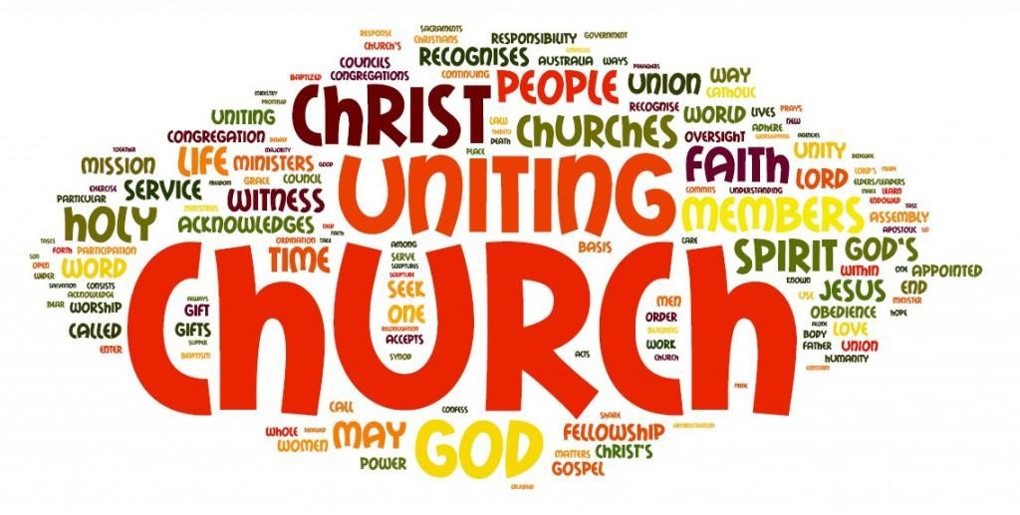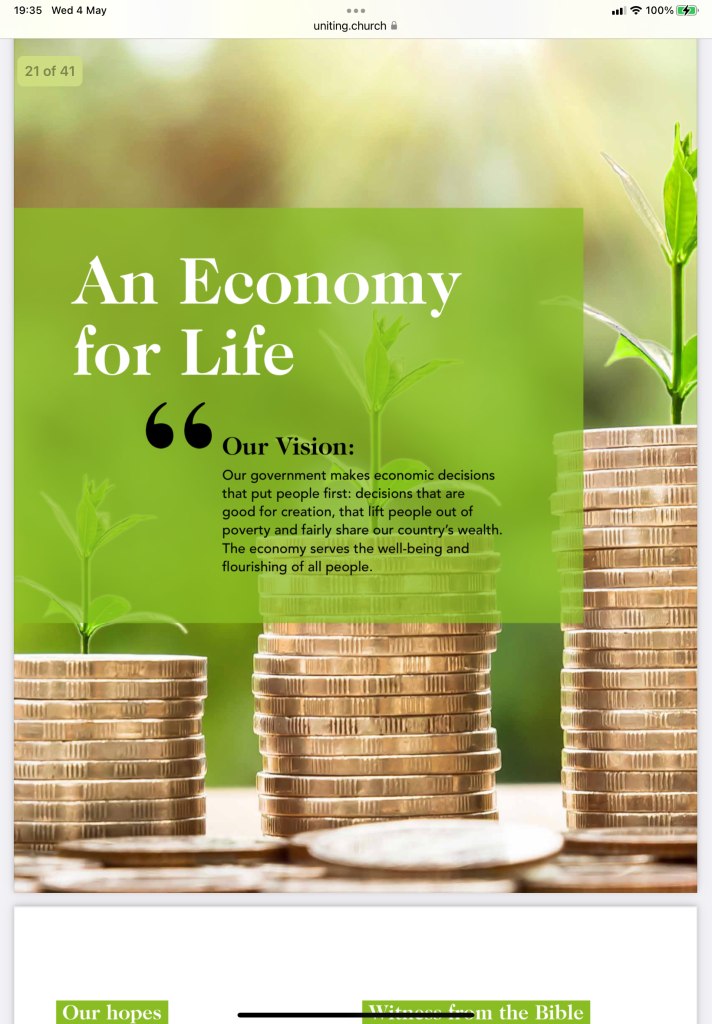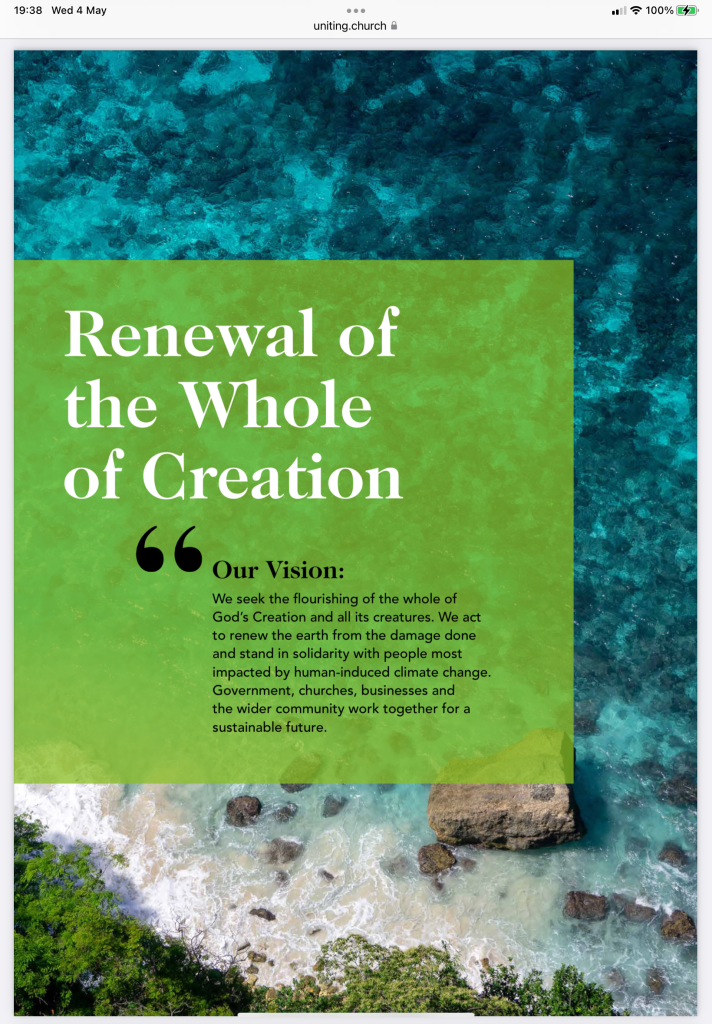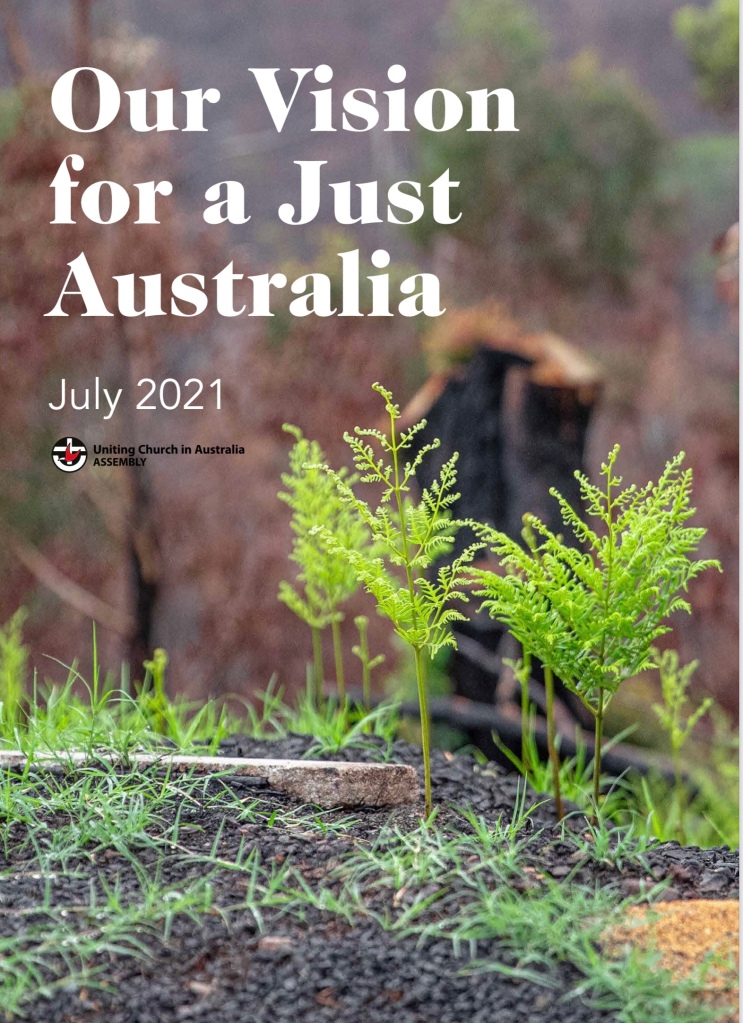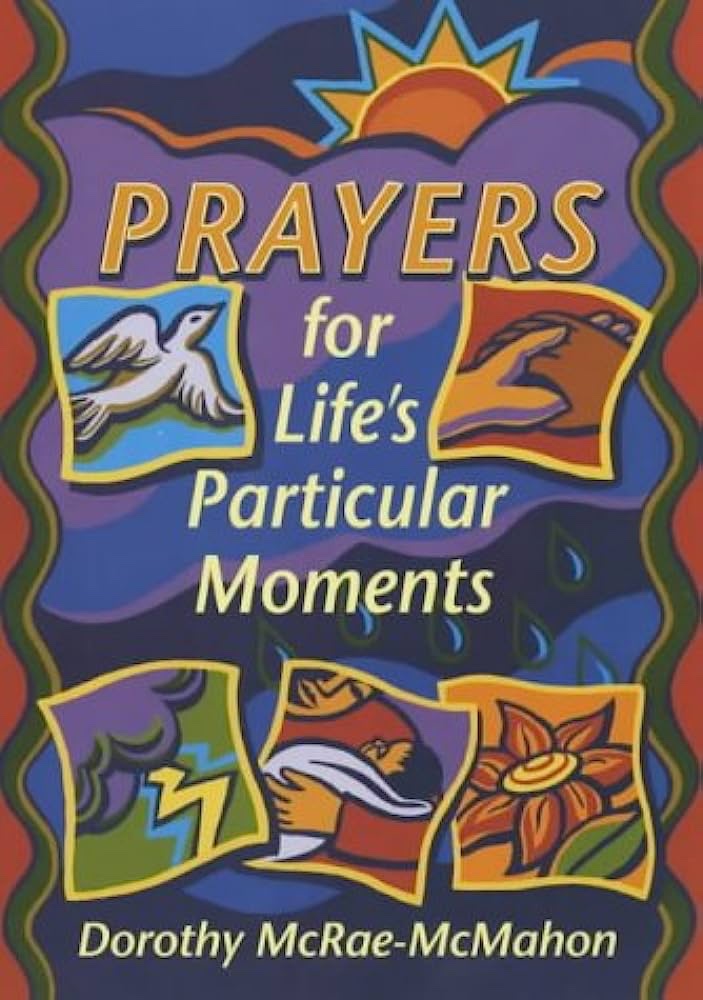Christians are used to praying The Lord’s Prayer on a regular basis, in obedience to the instructions of Jesus recorded in two Gospels: “when you pray, say …” (Luke 11:2; Matt 6:9). This prayer can be considered a succinct primer for prayer, since it contains the key elements of praying.
After an opening adoration of God (“our Father in heaven, holy is your name”), there follows prayers for the world (“your kingdom come, your will be done”), petitions for ourselves (“give us bread for the day, forgive us our sins, do not bring us to the time of trial”), and intercessions for others (“as we forgive those who sin against us”). In the later version of the prayer, a closing benediction is included (“yours is the kingdom, the power, the glory”), ending, of course, with “Amen”. The pattern is clear and concise. See
and
There is a similar primer for prayer in Hebrew Scriptures, and it is offered by the lectionary for this coming Sunday, the Fourth Sunday after Pentecost. Psalm 86 comprises a string of prayers, offering petition, thanksgiving, adoration, and intercession, filled with phrases that occur in other psalms and prayers in Hebrew Scripture. Although some commentators have criticised it for being unoriginal, it serves an important purpose, collating many phrases that can serve well those who pray.
(And a similar criticism of unoriginality can be levelled against The Lord’s Prayer; every phrase in that prayer reflects ideas expressed already in Hebrew Scriptures. The originality of the prayer lies not in its content, but in the distinctive way that Jesus has drawn together each element into a cohesive unity.)

Psalm 86 is a prayer which is titled as “A psalm of David”, one of 72 psalms directly attributed to the poet king. Critical studies of the Psalms maintain a strong degree of scepticism regarding the attribution to David of those songs. As the psalm is a fine compilation of various psalmic phrases, however, we will maintain references to the author as “the psalmist”.
The psalm falls into four sections, each with its own style of praying. First (86:1–7), the psalmist cries out in great need, asking God to hear and act on his or her behalf. Then, in a traditional formulaic statement (86:8–10), the psalmist offers adoration of God as the only true God, the Lord of the nations. In the following verses (86:11–13), the psalmist asks God to teach them God’s way and to unite their heart to fear God’s name, so that they might glorify God’s name forever. Finally (86:14–17), in light of the enemies that are perceived, the psalmist again appeals to God’s mercy and grace to deliver them.
The opening section of the prayer (verses 1–7) thus includes a substantial collection of petitions to be prayed in times of trouble. Along with the further petitions in verse 11 and verses 16–17, there are a total of eleven petitions to God in this psalm. (We will explore these further in a subsequent blog post.)
Thanksgiving is the focus in verses 12–13, when the psalmist declares, “I will give thanks to you, O Lord my God, with my whole heart, and I will glorify your name forever; for great is your steadfast love toward me; you have delivered my soul from the depths of Sheol”. Prayers giving thanks to God occur frequently in the book of Psalms (Ps 7:17; 9:1; 28:7; 30:12; 44:8; 54:6; 57:9; 75:1; 79:13; 92:1; 97:12; 100:4; 105:1; 106:1, 47; 107:1; 108:3; 109:30; 111:1; 118:1, 19, 28–29; 122:4; 136:1–3, 26; 138:1–2; 140:13; 142:7; 145:10; see also 1 Chron 29:13; 2 Chron 30:22; Neh 12:24).
Celebrations of being delivered from Sheol likewise occur in other psalms (Ps 30:3; 49:15; 71:20; and see a counterpoint at Hos 13:14). Glorifying the name of the Lord is also a common practice (Ps 22:23; 29:2; 66:2; 72:19; 96:8; 105:3; 115:1; 148:13; 1 Chron 16:8–10, 28–30, 35; Isa 24:15; and for a counterpoint, Mal 2:2). Each of these phrases connects in multiple ways with other parts of Hebrew Scripture.
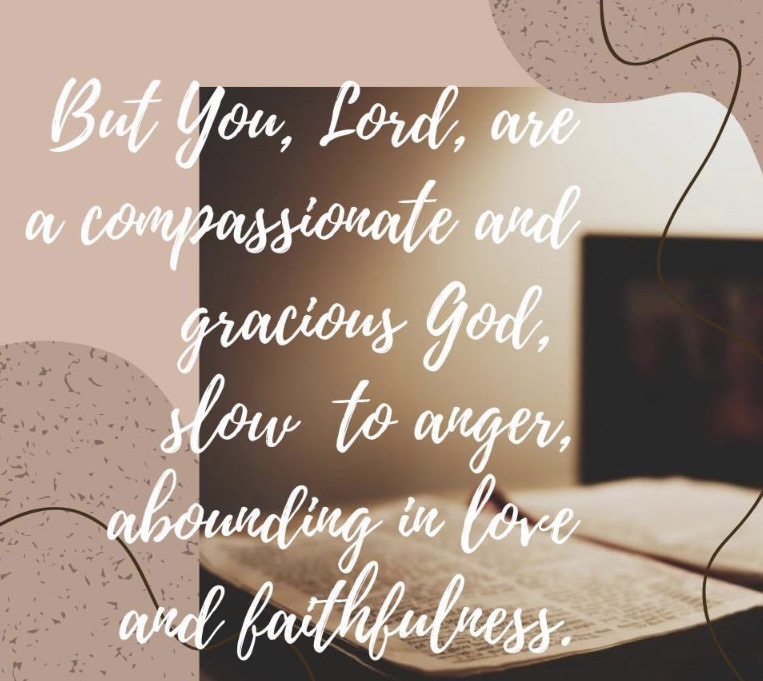
Adoration is offered in verses 8 to 10 and again in verse 15 of Psalm 86. In the latter verse, the psalmist addresses God as “a God merciful and gracious, slow to anger and abounding in steadfast love and faithfulness”—the same refrain found in many places in the Hebrew Scriptures (Exod 34:6; 2 Chron 30:8–9; Neh 9:17, 32; Jonah 4:2; Joel 2:13; Ps 86:15; 103:8, 11; 111:4; 145:8–9). In both thanksgiving and in adoration, then, the psalm echoes the prayers offered in other psalms as well as in prophetic works.
In the first expression of adoration, the psalmist draws a clear comparison between the Lord God and the many other gods: “there is none like you among the gods, O Lord, nor are there any works like yours” (v.8). This reflects early (pre-Exilic) understandings about the Lord God amongst the many gods, before the Exilic experience crystallised the move into monotheism, articulated especially by Second Isaiah, that “beside me there is no god” (Isa 45:5, 14, 18, 21, 22; 46:9), and in Deuteronomy, that “the Lord is God; there is no other besides him” (Deut 4:35, 39; 5:7; 6:14; 7:4; 8:19; 11:16, 28; 13:6–7, 13; 17:3; 18:20; 28:14, 36, 64; 29:26; 30:17–20).
Could this be a clue that supports the claim in the title of this psalm, that it was written by David? The pre-monotheistic view of the Lord God amongst the gods is reflected in the ancestral narratives concerning Jacob (Gen 31:30–35; 35:1–4). Psalm 82 begins, “God has taken his place in the divine council; in the midst of the gods he holds judgement” (Ps 82:1); of these gods, he says “they have neither knowledge nor understanding, they walk around in darkness” (Ps 82:5).
This criticism reflects the claim that while they wandered in the wilderness, the people “made [God] jealous with strange gods, with abhorrent things they provoked him; they sacrificed to demons, not God, to deities they had never known, to new ones recently arrived, whom your ancestors had not feared” (Deut 32:16–17).
This critical view of other gods is also reflected in the opening words of the Decalogue: “You shall have no other gods before me. You shall not make for yourself an idol, whether in the form of anything that is in heaven above, or that is on the earth beneath, or that is in the water under the earth. You shall not bow down to them or worship them; for I the Lord your God am a jealous God, punishing children for the iniquity of parents, to the third and the fourth generation of those who reject me, but showing steadfast love to the thousandth generation of those who love me and keep my commandments” (Exod 20:2–5).
In the song of celebration attributed to Moses after passing through the Sea of Reeds, the people rejoice, asking “who is like you, O Lord, among the gods? who is like you, majestic in holiness, awesome in splendor, doing wonders?” (Exod 15:11). Later, Jethro the Midianite affirms, “I know that the Lord is greater than all gods, because he delivered the people from the Egyptians, when they dealt arrogantly with them” (Exod 18:11). The distinctiveness of the Lord God is known and celebrated in these ancient sagas. The psalm thus may well have origins in the time of David, long before later post-Exilic theological developments had occurred.
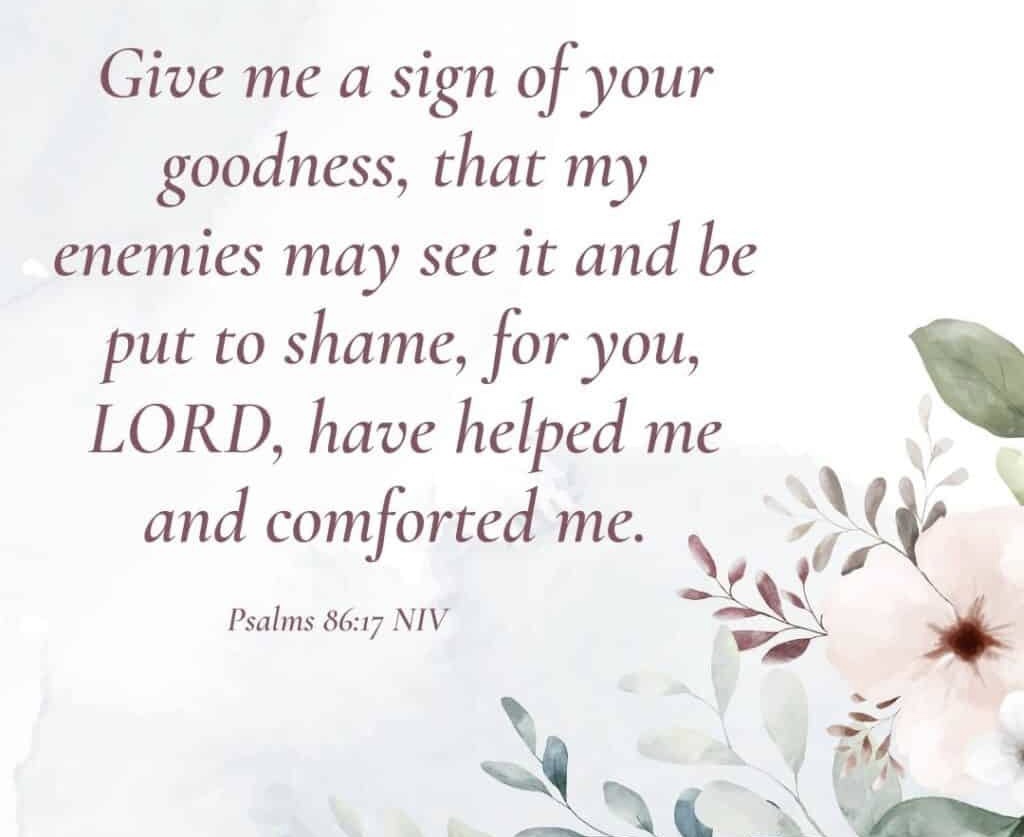
Intercession is the flavour of the prayers offered in verses 14 and 17. Although there is antagonism towards “the insolent … a band of ruffians” (v.14), nevertheless the psalmist hopes that “those who hate me may see [a sign of your favour] and be put to shame” (v.17). Prayers for enemies to be put to shame occur regularly in the psalms (Ps 6:10; 35:4, 26; 40:14; 57:3; 70:2; 71:13, 24; 83:17; 109:28; 119:78; 129:5) and the prophets look for this fate to meet those who are unfaithful (Isa 42:17; 44:9, 11; Jer 2:36; 17:13; 50:2; 51:47; Hos 10:6; Zech 10:3-5).
But praying for enemies to experience God’s grace, as in Ps 86:17, is rare. The psalmist prays for God’s favour to be shown to the faithful people of Israel (Ps 90:17; 106:4; 119:58) and the ancestral sagas record that God showed favour to Noah (Gen 6:8), Joseph (Gen 39:4), Moses (Exod 33:12-17), the people in the wilderness (Lev 26:9), Samuel (1 Sam 2:26), Manasseh (2 Chron 33:12-13), and the remnant who returned to the land (Ezra 9:8).
There is, nevertheless, no other prayer in Hebrew Scripture for God to show favour to enemies, apart from the final verse of Psalm 86. This distinctive prayer thus reaches out across the centuries to link with the teaching of Jesus, to “love your enemies, do good to those who hate you, bless those who curse you, pray for those who abuse you” (Luke 6:27-28).
Picturing God as the one who “has helped me and comforted me” (v.17) does resonate strongly, however, with other scriptural passages. God comforts—most famously in Psalm 23, where the psalmist prays, “your rod and your staff, they comfort me” (Ps 23:4), but also in the longest psalm of all, where we hear the plea, “let your steadfast love become my comfort according to your promise to your servant” (Ps 119:76), as well as the affirmation, “when I think of your ordinances from of old, I take comfort, O Lord” (Ps 119:52).
So, in a famous oracle, the prophet Jeremiah promises Israel that God says, “I will turn their mourning into joy, I will comfort them, and give them gladness for sorrow” (Jer 31:13), and another prophet in exile sings, “the Lord will comfort Zion; he will comfort all her waste places” (Isa 51:3). Years later, a post-exilic prophet affirms that God declares, “as a mother comforts her child, so I will comfort you; you shall be comforted in Jerusalem” (Isa 66:13), and another, Zechariah, conveys the message that “cities shall again overflow with prosperity; the Lord will again comfort Zion and again choose Jerusalem” (Zech 1:17).
Not only will God comfort; God is also the one who helps (Ps 86:17). “The Lord helps [the righteous] and rescues them; he rescues them from the wicked, and saves them, because they take refuge in him”, says the psalmist (Ps 37:40). “It is the Lord God who helps me”, says Isaiah (Isa 50:7, 9). So God is “helper of the orphan” (Ps 10:14), “the God of the lowly, helper of the oppressed, upholder of the weak, protector of the forsaken, saviour of those without hope” (Judith 9:11). “Surely, God is my helper”, sings the psalmist (Ps 54:4), and so they pray, “O Lord, be my helper” (Ps 30:10).
How God is understood in this psalm, and the way that God relates to the people who are in covenant with God, and indeed with all people of the world, is entirely consistent with these elements as expressed elsewhere in scripture.
(more in the next blog …)

